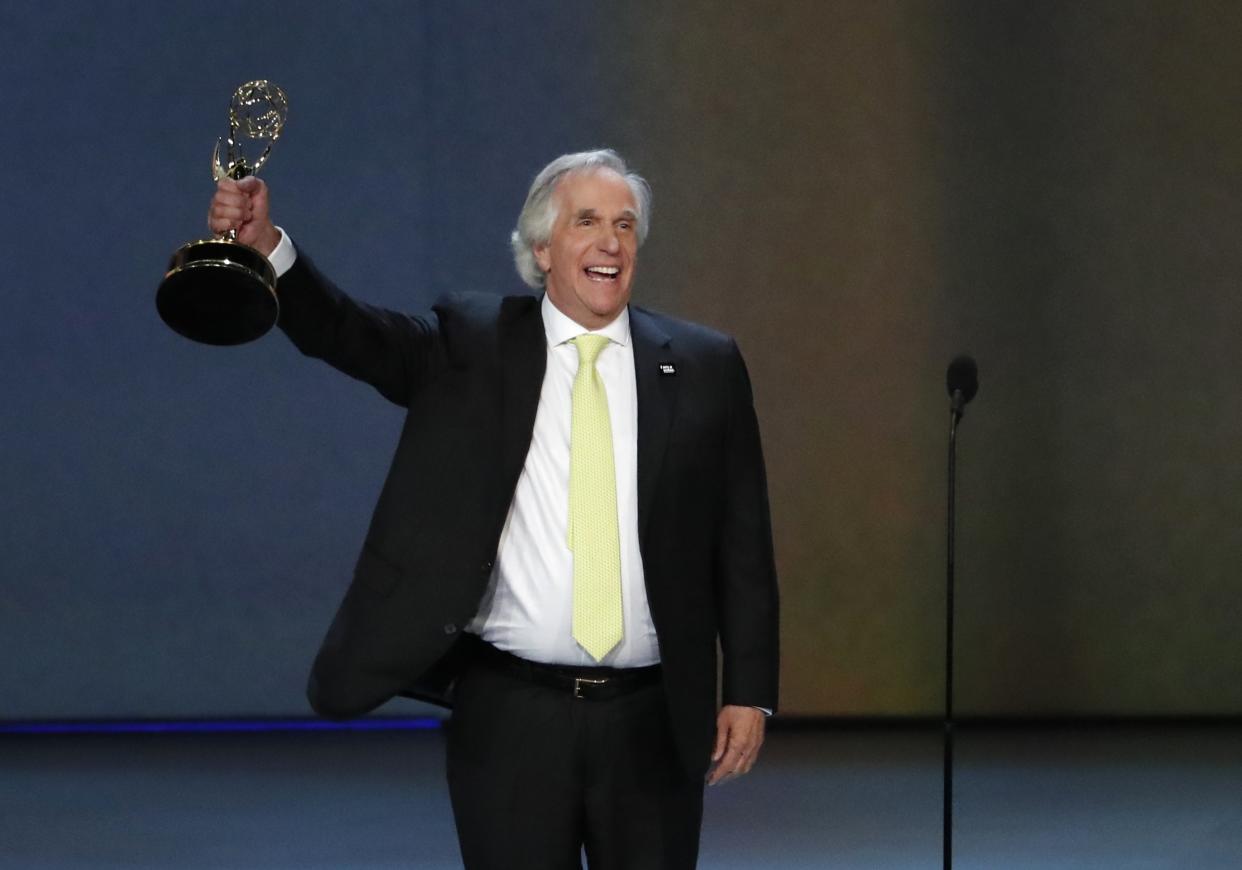The Emmys were a self-congratulatory bore — with two exceptions

Does anyone doubt that the high point of this year’s Emmys was the first award handed out on Monday night? Henry Winkler’s win for Outstanding Supporting Actor in a Comedy Series wasn’t just a congratulations for the fine job he did in the first season of HBO’s Barry — it was a big Hollywood hug to a man who by all accounts is one of the nicest people in showbiz. It’s great to see virtue and hard work rewarded.
Those qualities also figured in the other emotionally moving moment of the show. No, I’m not talking about the marriage proposal made by that guy who won an Emmy for directing the Oscars. I’m talking about Michael Che’s “Reparation Emmys,” a taped bit in which Che sought out veteran African-American performers who never won an Emmy, but deserved to. To see Marla Gibbs (The Jeffersons), Jimmy Walker (Good Times), and Jaleel White (Family Matters), among others, handed Emmys by a poker-faced Che was both very funny and very poignant.
The point Che was making as comedy also worked as truth: These underrated performers really did deserve Emmy-level recognition when they were at the height of their popularity. And they never had a chance to win in their own eras, because — well, you know why, and good for Che to point this out so explicitly. I love Bryan Cranston and Breaking Bad, but Che was right when he made Cranston the butt of a joke: The black cast members of The Wire absolutely were robbed of Emmys when it was on the air.
As for the rest of the Emmy Awards show — it was mostly a self-congratulatory bore. All awards shows are self-congratulatory, of course, but this one, arriving at the height of the cultural discussion about diversity and inclusion, was almost suffocatingly smug. I lost count of the numbers of times the word “diversity” was uttered, starting with the opening musical number led by Kate McKinnon and Kenan Thompson. The industry crowd in the audience was happy to keep applauding itself — at one point, the president of the Television Academy was brought to specifically ask the audience to applaud itself.
Mind you, I’m not saying diversity isn’t important, but don’t talk about it: Do something about it. Fortunately, a few of the night’s biggest winners embodied some of the sort of diversity that is essential. Kudos to Amy Sherman-Palladino, creator of The Marvelous Mrs. Maisel, for winning two Emmys (for her writing and directing) and for being responsible for the Best Comedy Actress (Rachel Brosnahan) and Supporting Actress (Alex Borstein) wins as well. After all those years of being Emmy-ignored for her great work on Gilmore Girls, Sherman-Palladino is a woman justly rewarded. (She also made her network — Amazon Prime — the first streaming service to win the Best Comedy award.) On the other hand, the night was a shocking disaster for Donald Glover’s Atlanta — this wonderful show was shut out of any major wins.
I assume that next year, the Emmys will not be hosted by Che and Colin Jost — the SNL “Weekend Update” anchors really bombed the opening monologue. But it would be nice if the Television Academy took another look at Che’s “Reparation Emmys” segment and decided next year to give real retrospective Emmys to some veteran performers who were denied them in our less enlightened past.
Read more from Yahoo Entertainment:

